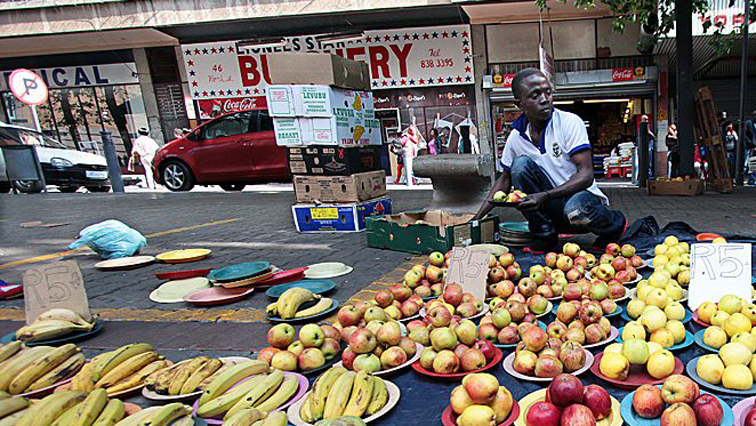Street vendors in the Rustenburg CBD in the North West say although they are willing to comply with the national lockdown announced by President Cyril Ramaphosa this week, they are concerned about their livelihood. Most say they depend on the income made from selling fruits and vegetables on the streets.
It is business as usual in the busy streets of Rustenburg. The platinum city recorded three cases of coronavirus this week. Everyone in the streets seems to be continuing with their lives as usual. Only a few people have been seen with masks on their faces, practicing one of the precautionary measures advised to prevent the spread of the coronavirus and curbing further infections.
In the video below, SA Informal Traders Forum is concerned about the pending lockdown. The leadership of the informal sector addressed the media about the exclusion of informal traders by the Small Business Department.
This is about to change drastically, as the country observes a nationwide lockdown, starting on Friday morning. Forty-nine-year old Bontle Letlhake, who has worked as an informal trader since 1999, will lose income in the next 21 days. She says her family of seven depends on her fruit and vegetable business.
“I am a single parent and I support my six children, that is my three children and three grandchildren, with the little income I make from this business. If my stock is not sold out when everything is shut down tomorrow, I will endure losses,” says Letlhake.
In this video below President Cyril Ramaphosa addresses the nation and issues out a lockdown of 21 days:
Other street vendors say they do not know how they will survive without any income during the 21-day lockdown.
“I want to know what are we going to eat during those 21 days. Our business is our livelihood.”
“I’ll be at home but I have a big worry. We sell food and every day our income is hand to mouth, what is going to happen in the next 21 days without income,” some vendors say.
Tebogo Leketi, who sells food and drinks, has employed five people at her small food outlet. She says some of her employees are not from around the area and depend on the little she pays them. Leketi says she’s more worried about how her employees will survive the 21 days without any form of income.
“What are we going to tell them? What are we going to give them? They are going to sit down. When we come back again, 21 days, what are we going to say to them? Are we paying them now with what? Because our local municipality doesn’t want to come to us and talk to us. Are we going to be compensated? We don’t know whether we are in the payroll or what,’ says Leketi.

Loading…
What you can and can’t do during lockdown:
During the lockdown, people will be confined to their homes unless they are performing an essential service. Movement will be allowed for people collecting a social grant or seeking medical help or collecting chronic medication. Different ministers have since informed the nation about government measures that will be put in place during the lockdown. According to government, only essential services will be allowed to operate during this lockdown.
Below are some of the things you will be permitted to do and things you will be not be allowed to do during the 21 days lockdown period.
Public Transport
Transport Minister Fikile Mbalula says public transport would only be available from 5am and 9am, and 4pm and 8pm.
However, the minister has emphasised that buses and trains will not be allowed to transport people.
He has added that taxis would be allowed to ferry essential services workers and consumers to shops, but under strict and controlled measures that observe social distancing to limit the spread of the deadly coronavirus.
In the video below, Minister Mbalula shares transport guidelines:
Uber, Bolt and metered taxis would also be allowed to operate, under strict and controlled measures as well.
Workers who have been categorised as essential services will be allowed to travel in private vehicles under strict measures.
These measures include that if a vehicle is certified to carry four passengers, they will be allowed to carry one person only, while a vehicle licensed to carry up to 8 passengers will only be permitted to load a maximum of 3 passengers.
Below is the 21 days lockdown economic measure graph:

Loading…






